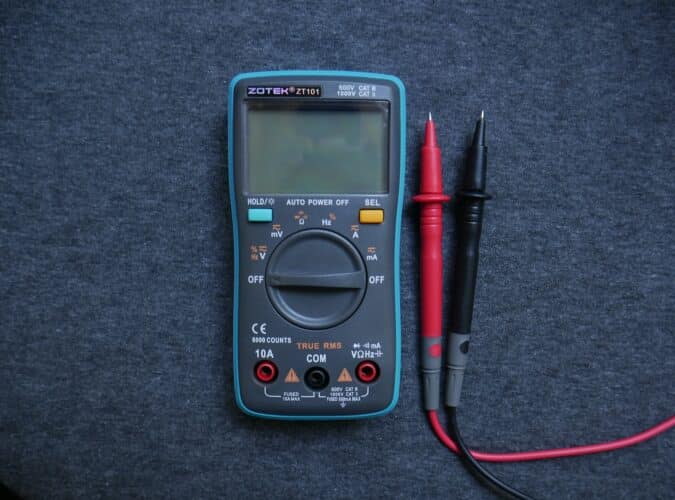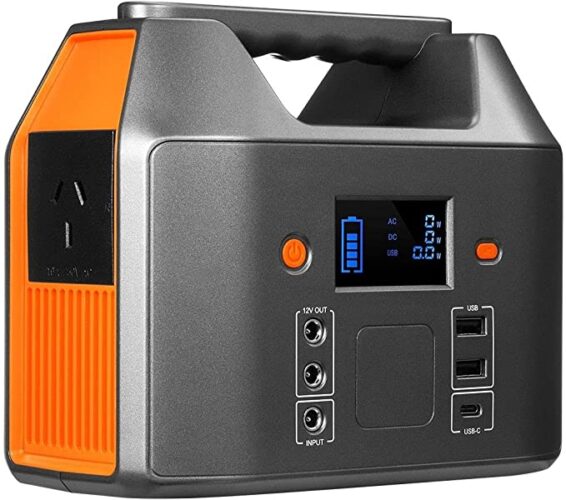While camping is a great holiday past-time & experience, there is one thing that most people can live without while camping is, electricity. You do not need electricity to grow a tree or cook on an open fire, but it sure is nice to have.
Moreover, most people cannot afford to cut off completely from the external world and need to use certain electrical equipment. So, how can you generate electricity while camping? Through a portable generator of course.
This is where the confusion starts. While camping, generators are used to provide electricity while people enjoy their time outdoors. So being outdoors, do you need to ground your generator?
Yes, when you use electrical devices outdoors, it is essential that you ground your generator for maximum security. A portable ground generator helps to control power surges for all plug-connected equipment in critical situations.
This is because the long-term durability of your generator might be compromised.
It can lead to damage if it is not grounded while you are camping outdoors. Though the process of grounding a generator is simple, it should never be practiced by someone who lacks knowledge of how generators work.
Equipment Needed to Ground a Generator

You need a few simple types of equipment to ground a portable generator. These include:
- A multimeter
- Ground Wire
- Strippers and Cables Ties
- Copper Rod and Copper Wire
- Pliers
- Hammer
- Wrench
How to Ground Portable Generators While Camping?
Make sure the power supply is turned off before you start working with your generator.
If there was any doubt about it, turn off both devices (the generator and the one you want to plugin). Then you can start working.
Find a Firm Ground
First of all, you need to look for an area where the ground is reasonably solid and can support your generator’s weight. Ensure that it has no moisture, or any other chemical substances present on the surface of the ground.
It is essential to clean the spot with a wire brush until it reaches bare earth.
This will ensure that the generator is grounded in a suitable place.
Grounding Conductor Technique
Now, place the copper ground rod on the ground where you will be grounding your generator frame.
Make sure it’s at least 6 inches long, and 4 inches wide.
Grounding Requirements
Using a hammer and screwdriver, tap around the copper ground rod so that it makes contact with the ground.
Trace around the rod so that you know where it is.
This will ensure the rod stays in the same place when you move away for a period of time or if someone else takes your place.
Low Resistance Connection
After this, cut an inch off the two ends of the copper rod. Leave one side with one inch and cut another inch off the other side.
This will ensure that your copper grounding rod is of the correct size for grounding your generator.
Install Circuit Breaker
Strip both ends of the copper grounding wire with pliers.
Ensure that it has no sharp or rough edges on either end of the wire because this can cause electrocution when you connect it to the generator later.
Stripped Wire Connection
Strip one end of each of the cables attached to your generator with a stripper, and attach the copper rod at the end of both cables using your pliers.
This is where you will be attaching your wire later to a neutral ground conductor.
Conclusion Grounding
Connect both green cables with their respective screws on the generator in full.
Note that these screws are different from the screws that connect the cables to the generator.
Ground Connection Establishment
Now, attach one end of your wire to a metal part on your generator which is already grounded, and use a wrench to tighten it.
Ensure that you have enough length for this wire as well as to move around with it comfortably.
The other end of your wire should be attached to the copper rod you inserted into the ground. Use a wrench to tighten this as well.
Connection Settings
Now, take your multimeter and set it to “DC Voltage.”
Connect one end of it to the negative terminal on your battery and then connect the other end to the generator’s metal part that connects to the ground.
Generator Acts
Switch on the generator and check the meter reading. You should see it display zero volts or close to zero volts. I
f this is not the case, try relocating your generator to an area where there is better soil contact with your copper rod.
Some spots might require you to hammer in the separate grounding rod again so that it touches the ground.
Least Resistance Power Supply
You can now connect your generator to the power supply that you want to use with it, and switch on the power supply.
If you are using an extension cord or any other type of cable, make sure you ground all three ends properly to the electrical system to prevent electric shock from the electrical circuit.
The Ground Wire
Choosing how to ground your generator depends entirely on what kind of camping experience you are looking for.
For example, If you have a small setup with just a tent and a couple of lamps then one single point grounding is good enough to supply power to the electrical circuit.
On the other hand, if you have a large group going out together then multiple grounding points should be used as they provide an added layer of safety in case something goes wrong on the external ground.
How Can I Use The Ground Wire When There Is No Earth Around?
Well, there’s a catch here as well. Camper vans usually have metal grids underneath them which help to absorb shocks when they are parked on uneven surfaces. A grounding bolt is a helpful component to fix the copper wire to the grounding rod.
This can be used as an alternative source of grounding your generator when needed. However, these days most campers do not have this kind of grid because of the increase in technology.
In this case, you can always take a long wire and stick it into moist earth to get rid of any electric shocks or problems that may arise while generating electricity.
What Are Some Methods for Brewing Coffee While Camping?
For coffee aficionados who love camping, finding the best ways to make coffee on-the-go is essential. Some popular methods include using a portable French press, a pour-over setup, or even a stovetop espresso maker. Each technique offers unique flavors and requires minimal equipment, ensuring that campers can enjoy a delicious cup of Joe even in the great outdoors.
Laws Regarding Grounding Generators
It is also important to note that generators are required by law in many countries/counties/states to be grounded when used outside. For example, California requires that portable generators always be plugged into a power source that has been properly wired.
The generator needs to have 3-prong outlets because bare wires can easily come into contact with water or other objects that conduct electricity.
Even if the purpose of your generator is for emergency use, you are required by law to ground it when camping outside.
Some Q & A In Case You Didn’t Know
What Are Portable Generators?
Portable generators have a grounding rod, grounding bolt, copper wire, transfer switch, neutral conductor, breaker box, ground cable and fuel tank all in a separately derived system that is detachable.
Portable generators offer power for appliances in emergency situations, recreation occasions and for damage prevention purposes since it is safe to use and easy to carry. It is hardy and durable for the long run as well.
Modern generators do not require grounding if you connect the copper wire to the portable generator properly.
What Is Grounding a Portable Generator?
Grounding a generator is simply the process of making sure that it’s safe to use. It involves attaching all parts of the machine with metal.
This ensures that if anything goes wrong, the ground wire will disconnect immediately and cut off electricity flow to avoid injury or damage.
The process of grounding a generator is quite simple so as long as you have a smart multi-meter. You need to attach the red wire from the generator to the metal part leading to the ground using a multimeter.
Conclusion
So now that you know about grounding your generator when camping, set out for a lovely vacation with friends and family knowing that everything will be perfectly safe.
We personally use generators while camping often and have never had a problem with them yet so it’s nothing to worry about even if you are using one alone.
However, we would recommend going over overall safety measures before turning on the generator just to be on the safer side!






